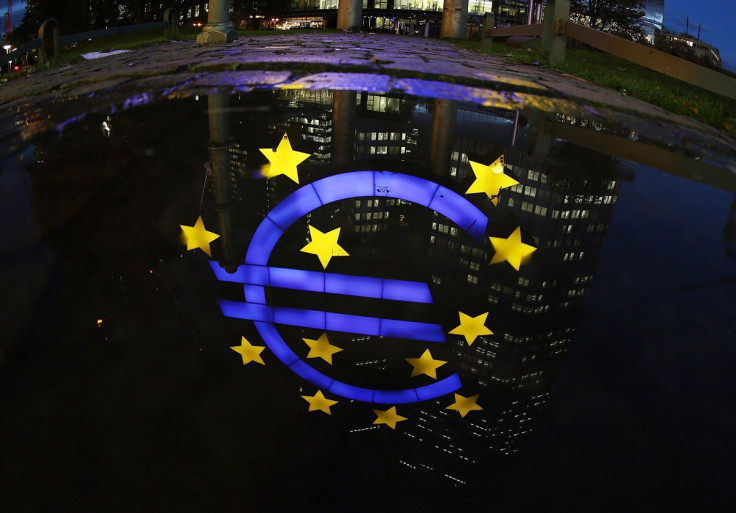FX Focus: Euro plunges as ECB extends QE programme until December 2017
Pound gains almost 1% against euro and closes in on €1.19 threshold, but dips 0.25% against the dollar.

The euro nursed sharp losses on Thursday (8 December), after the European Central Bank extended its bond-buying programme until at least December 2017, in line with market expectation, as it kept interest rates unchanged at zero.
Having hit a three-week high of $1.0799 earlier in the day, the euro pulled back sharply following the announcement and by mid afternoon was trading 1.22% lower against the US dollar, exchanging hands at $1.0622.
The common currency was also sharply lower against the pound and the yen, falling 0.95% against the former and 0.87% against the latter to trade at 0.8440p and ¥121.26 respectively.
In a statement, the bank said its €80bn-a-month quantitative easing scheme will continue as normal until the end of March 2017, after which it would cut bond purchases to €60bn (£50.63bn) a month.
ECB President Mario Draghi said that if the Eurozone economic outlook "becomes less favourable", the central bank would consider expanding the size and/or length of its bond-buying programme.
Fighting off suggestions of a fudge, or whether or not the ECB's move constituted a tapering, Draghi said: "The presence of the ECB will be on the markets for a long time. That's why tapering was not discussed."
Analysts, however, were left largely unimpressed by the ECB's decision and by the language used by Draghi.
"In essence all they [ the ECB] have done is reduced the monthly asset purchase amount back to the levels it was in March this year, when deflation was still a worry, and now that rates are rising again have pulled it back down again," said Michael Hewson, chief market analyst at CMC Markets.
Russ Mould, investment director at AJ Bell, added: "The ECB's decision to start tapering its QE programme may revive nasty memories of the 'Taper Tantrum' provoked in 2013 by the US Federal Reserve's first tentative step to towards tightening monetary policy.
"However, today's statement is so laced with caveats President Mario Draghi is clearly doing his best to keep financial markets sweet."
Meanwhile, the pound fell 0.25% against the dollar, exchanging hands at $1.2592 and extending a trend that has seen the two currencies trade in a chaotic fashion this week, with prices violently swinging between losses and gains as the conflicting combination of dollar weakness and persistent hard Brexit fears kept investors on edge.
"Since the initial Brexit shocker in June, sterling has been under extreme pressure and it could take any unexpected catalyst to trigger another market shaking selloff on the pound/dollar," said FXTM research analyst Lukman Otunuga.
"The pending Federal Open Market Commitee meeting next where US rates are expected to be increased could be the meal ticket bears need to drag the pound/dollar back towards $1.250."
The dollar was also on the front foot against some of its other major rivals, gaining 0.34% and 0.94% against the yen and the Swiss franc respectively, to trade at ¥114.16 and CHF1.0173 and rising 0.61% against its Australian counterpart to AUD$1.3440
© Copyright IBTimes 2025. All rights reserved.






















